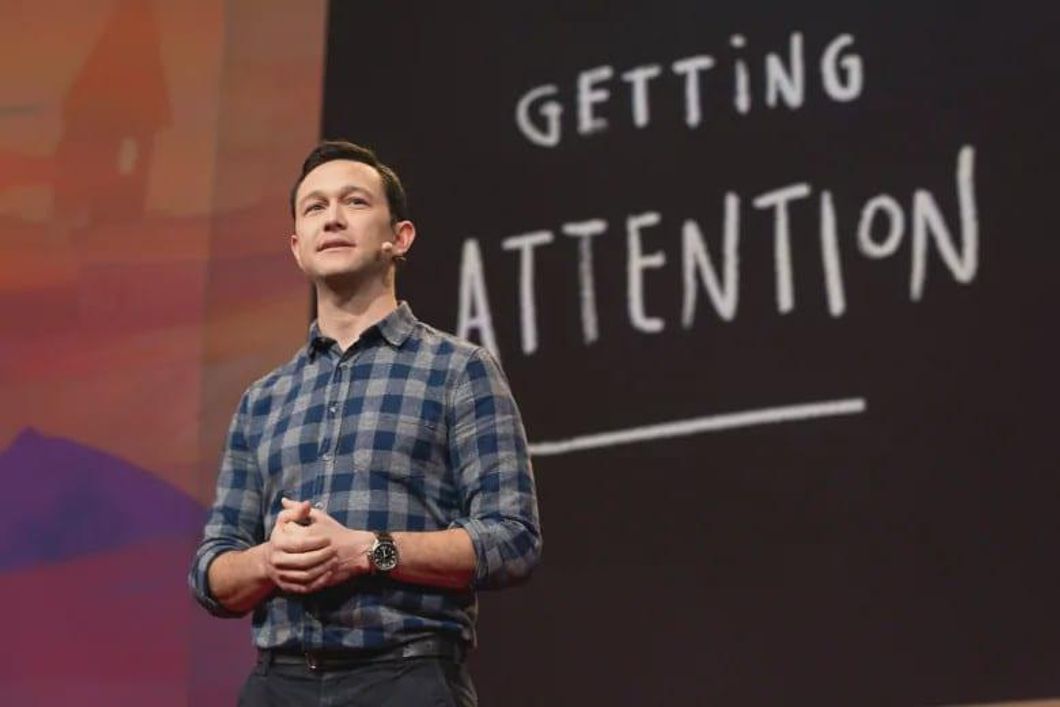I watched a Ted Talk a few days ago. It popped up on my LinkedIn, so I thought why not? This man, Joseph Gordon-something started talking about acting, about being really focused in the moment. "Good for him," I thought.
Then he brought up the idea of being in the limelight, getting attention, and having that power. "Again, kudos to you, sir," I thought. "Getting a little boastful, aren't we?"
But then, he said, "There's another powerful feeling that I'm lucky to experience, as an actor. And it's kind of the opposite: it comes from paying attention." That's of course where things got interesting, relevant, and pretty meaningful. Needless to say, I paid a good amount of attention to the rest of that talk.
Now I'm going to spare you the entire dialogue of that TedTalk, although I HIGHLY recommend watching it: https://www.ted.com/talks/joseph_gordon_levitt_how.... But if you think about it, it makes sense. If you're incredibly focused on one thing, whatever it is you're doing: acting, writing, speaking, doing math even (not everything needs to be a creative art). You're in the moment, in the zone. And really, you're not even in the zone; it's all about what you're doing. Not about you at all.
So that's what's interesting: how someone that gets famous, popular, gets attention because they're really good at what they do, they're not really trying to get attention. Rather, they're paying attention to that one thing, and the popularity is just a nice touch.
In theory, of course. The problem is, we've placed so much (SO MUCH) value on that attention of others, the likes and the shares and the retweets and views, that they've almost surpassed the importance of the work itself. Take one guess what the cause of this is: social media.
It's a pretty well-known issue that social media has made us hungry, in all the wrong ways. We crave (women at least) quite the opposite of food to be skinny, pretty, liked by the random people that scroll on Instagram. We take 100 pictures to find 1 good one, we edit it and buy presets, and photoshop until it looks "influencer-worthy." And as much as we want attention ourselves, we bestow it upon others too, drooling and oggling over Kendall Jenner and the likes.
Now, I had never even heard of Joseph Gordon-Levitt before I saw this TedTalk, but evidently he's amassed quite the viewership as well. So imagine how many people there are out there, that have an "unfair share" of attention. Imagine what that does to them. If you're like me, and overthink even a simple compliment or piece of constructive criticism, you can probably imagine that they're not doing pretty well.
And even more than mental health and self-confidence, getting excessive amounts of attention degrades the field, the work, the craft that you have worked so hard at. If you heard Joseph speak about this feeling that he gets, when he's up on set and the director calls "Action," how everything narrows and it all just becomes what he's about to do, what he's doing, the act of acting.
The creative fields suffer most from this excessive need for attention, because they rely the most on paying attention. I'm sure there are many who disagree with me on that; you could say, "Well people write poems and songs when they're daydreaming or lost in though. That's not being focused." Well, that's not being focused on reality, per say. But they're introspecting, digging deep into an internal well of feelings, emotions, memories, and more, a treasure trove of poetic content. Without that very specific and targeted focus, your product is going to be fake, shallow, and insincere. And ironically, it's not going to attract the attention of individuals that you were writing, or painting, or acting for in the first place.
This whole article is pretty much a call to not focus on what other people think of you. But it's more than just "they're too involved in their own lives to care about you." A lot of times, that's actually not true. Maybe you will get a decent amount of likes, shares, streams one day. But the important thing to realize is that they're not really appreciating you; they're appreciating what you produce. Make it about the creativity, and that's how you stay humble in the 21st century.















